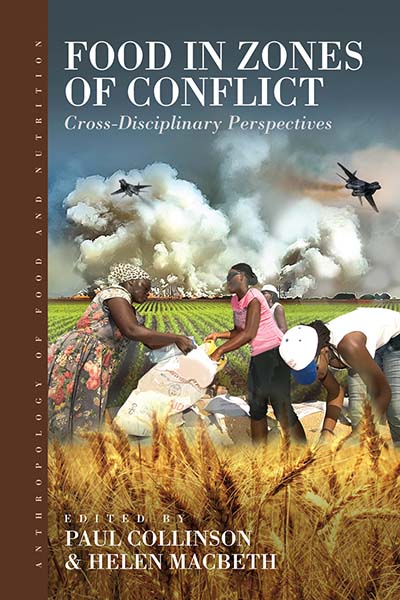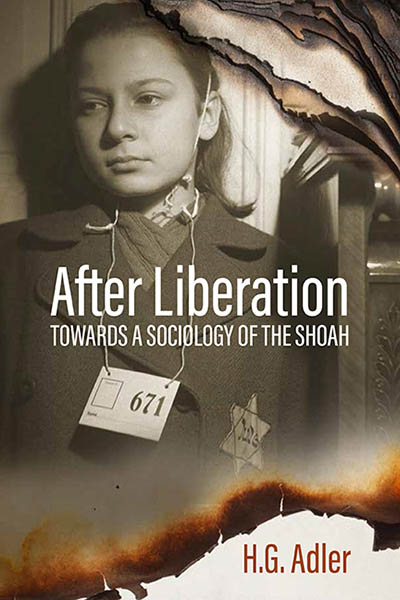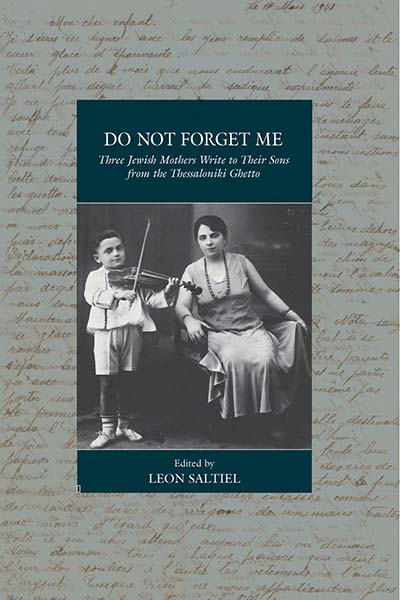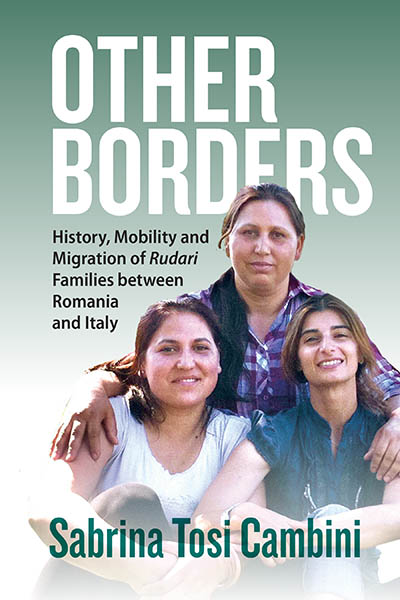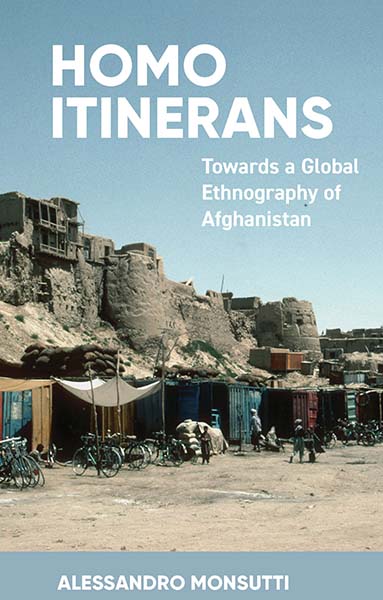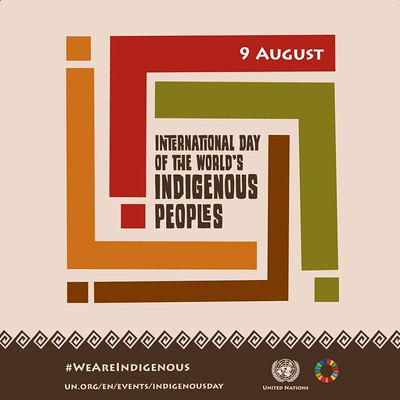29 October

The 29th October 2024 is the International Day of Care and Support! As the United Nations explains, “Care work, both paid and unpaid, is crucial to the future of decent work. Growing populations, ageing societies, changing families, women’s secondary status in labour markets and shortcomings in social policies demand urgent action on the organization of care work from governments, employers, trade unions and individual citizens.” If not adequately addressed, current deficits in care service provision and its quality will create a severe and unsustainable global care crisis and increase gender inequalities at work.“.
Read more on the Care Economy and the International Day of Care and Support on UN’s page here.
We would like to highlight four of our book series: The Anthropology of Obstetrics and Obstetricians: The Practice, Maintenance, and Reproduction of a Biomedical Profession, Fertility, Reproduction and Sexuality: Social and Cultural Perspectives, New Directions in Anthropology, and Life Course, Culture and Aging: Global Transformations. For more details on these series, scroll down to the second section of this blog.
The first section of our blog is a collection of our latest titles relating to the studies of care and support, including the more recent books from the highlighted series.
Latest Berghahn books in the study of care and support

Paperback coming January 2025
Invisible Faces and Hidden Stories
Narratives of Vulnerable Populations and Their Caregivers
Edited by Cecilia Sem Obeng and Samuel Gyasi Obeng
“This book demonstrates that the anthropological approach is uniquely suited to uncovering how people live their lives and see their world without imposing judgment… Recommended.” • Choice
Volume 12, Studies in Public and Applied Anthropology
Read freely available introduction.

Open Access
Care in a Time of Humanitarianism
Stories of Refuge, Aid, and Repair in the Global South
Edited by Arzoo Osanloo & Cabeiri deBergh Robinson
“This volume is a timely and seminal contribution to understanding our time when humanitarian crisis unfolds in myriad forms in various sites. The perspectives on humanitarianism from the global South featured in this volume are both rich in their ethnographic grounding and multi-faceted in the analytical insights.” • Jiazhi Fengjiang, University of Edinburgh
Volume 5, Humanitarianism and Security
Read freely available introduction, and more with Open Access.

How Self-Government, Infrastructures, and Care Transform the State in Serbia
André Thiemann
“This is a very impressive book. The analysis is developed in sustained, thoughtful and detailed engagement with a very broad range of existing literature. • Stef Jansen, University of Sarajevo
Volume 49, EASA Series
Read freely available introduction.

Sterilization, Care and Reproductive Chronicity in Rural North India
Eva Fiks
“Sterilization ‘camps’ have earned a bad press in India – and rightly so. Yet, as Eva Fiks demonstrates in her elegant intervention, coercion is entangled with care for village women contending with the reproductive chronicity that is integral to their daily lives.” • Patricia Jeffery, Professor Emerita, University of Edinburgh
Volume 4, Lifeworlds: Knowledges, Politics, Histories
Read freely available introduction.

Ambiguities of Care in Burkina Faso
Helle Samuelsen
“This is a theoretically solid book presenting unique data and perspectives on survival strategies in a broad meaning. The focus is on the most marginalized populations of the world, outlining local, long-term trajectories of their dealing with challenges and uncertainties.” • Jónína Einarsdóttir, University of Iceland
Volume 22, Epistemologies of Healing
Read freely available introduction.

Open Access
Voices of Long-Term Care Workers
Elder Care in the Time of COVID-19 and Beyond
Andrea Freidus and Dena Shenk
“The book provides remarkable insights into the effect of the COVID-19 pandemic on front-line workers in North Carolina who care for the residential elderly (and) uses an excellent combination of ethnographic and epidemiological methods to provide in-depth qualitative insights while contextualized by the larger quantitative world of disease transmission.” • Linda M. Whiteford, University of South Florida
Volume 10, Life Course, Culture and Aging: Global Transformations
Read freely available introduction, and more with open access.

How is a Man Supposed to be a Man?
Male Childlessness – a Life Course Disrupted
Robin A. Hadley
“In this book Hadley lays bare the complex contexts surrounding aging and male childlessness in particular in a powerfully emotive and academically rigorous manner. The book contains a powerful message to those in academia and policymakers and institutional stakeholders, of the urgent need to acknowledge this structurally excluded population. The book is of interest not only to gerontologists but anthropologists, demographers, embryologists, psychologists, sociologists, practitioners in health and care, counsellors, social workers and students at all levels and the general public.” • British Society of Gerontology
Volume 48, Fertility, Reproduction and Sexuality: Social and Cultural Perspectives
Read freely available introduction.

Open Access
Translocal Care across Kosovo’s Borders
Reconfiguring Kinship along Gender and Generational Lines
Carolin Leutloff-Grandits
“This book is based on careful and in-depth ethnographic research, and it expertly embeds its findings in patterns on broader historical and geographical scales. The book displays all the hallmarks of high-quality anthropological research.” • Stef Jansen, University of Sarajevo
Volume 8, Anthropology of Europe
Read freely available introduction, and more with open access.

An Ethnography of Movement and Care in Australia
Angela Rong Yang Zhang
“This is a really good, in fact vital, contribution to our understanding of aged care. This is an opinion enhanced in part by the political context, at least in Australia, in which aged care is being discussed. In this country, which has an aging population and inadequate quality and quantity of aged care facilities, an opportunity exists to ask different kinds of questions – one of which might be about being at home in an institutional home”. • Simone Dennis, Università di Bologna
Volume 9, Life Course, Culture and Aging: Global Transformations
Read freely available introduction.

Challenging the Borders of Belonging, Care, and Policy
Edited by Nadia El-Shaarawi and Stéphanie Larchanché
“This is a welcome and timely addition to the scholarly literature on migration and health.” • Charles Watters, University of Sussex
Volume 10, Rethinking Biosocial Anthropology
Read freely available introduction.

Rethinking Aging and Caregiving in Contemporary East Asian Societies
Edited by Jeanne Shea, Katrina Moore and Hong Zhang
“This is a fascinating book which inspires us with new insights and deep thoughts. Through the description of the subjective practice of caregiving and the discourse of positive aging, the book has in fact come back to the essence of filial piety, focusing on subjectivity, dignity, love, responsibility, harmony and continuity in families, communities and the state, which is beyond social transformations and challenges of time.” • Asian Journal of Social Studies
Volume 6, Life Course, Culture and Aging: Global Transformations
Read freely available introduction.

Ethnographic Explorations of Aging and Migration
Edited by Azra Hromadžić and Monika Palmberger
“Overall, this volume offers valuable empirical and theoretical contributions to the anthropology of care and transnational families. It is highly recommended reading for students and scholars seeking insights into novel care practices and care relations in this fast-changing field.” • International Journal of Care and Caring
Volume 4, Life Course, Culture and Aging: Global Transformations
Read freely available introduction.

An Ethnography of Healthcare and Decision-Making in Bhutan
Jonathan Taee
“This book is a welcome pioneering ethnography based on case studies that demonstrate a clear understanding of the way in which public health care services in Bhutan integrate both biomedical and ’traditional’ medicine.” • Mona Schrempf, Free University, Berlin
Volume 4, WYSE Series in Social Anthropology
Read freely available introduction.
Berghahn Books Series with titles on the study of care
The Anthropology of Obstetrics and Obstetricians: The Practice, Maintenance, and Reproduction of a Biomedical Profession
click to expand on… Editors: Robbie Davis-Floyd, Rice University, Houston and Ashish Premkumar, Feinberg School of Medicine, Northwestern University
Robbie Davis-Floyd PhD, Adjunct Professor, Dept. of Anthropology, Rice University, Houston, Fellow of the Society for Applied Anthropology, and Senior Advisor to the Council on Anthropology and Reproduction, is a well-known medical/reproductive anthropologist and international speaker and researcher in transformational models in childbirth, midwifery, obstetrics, and reproduction.
Ashish PremkumarMD is an Assistant Professor of Obstetrics and Gynecology at the Feinberg School of Medicine at Northwestern University, as well as a maternal-fetal medicine subspecialist practicing at the John H. Stroger, Jr. Hospital of Cook County, Illinois. He is also a doctoral candidate in the Department of Anthropology at The Graduate School at Northwestern University.
Obstetricians are the primary drivers of the research on and the implementation of interventions in the birth process that have long been the subjects of anthropological critiques. In many countries, they are also primary drivers of violence, disrespect, and abuse during the perinatal period. Yet there is little social science literature on obstetricians themselves, their educational processes, and their personal rationales for their practices. Thus, this dearth of social science literature on obstetricians constitutes a huge gap waiting to be filled. These ground-breaking edited collections seek to fill that gap by officially creating an “anthropology of obstetrics and obstetricians” across countries and cultures—including biopolitical and professional cultures—so that a broad and deep understanding of these maternity care providers and their practices, ideologies, motivations, and diversities can be achieved.



Obstetricians Speak: On Training, Practice, Fear, and Transformation
Cognition, Risk, and Responsibility in Obstetrics: Anthropological Analyses and Critiques of Obstetricians’ Practices
Obstetric Violence and Systemic Disparities: Can Obstetrics Be Humanized and Decolonized?
Fertility, Reproduction and Sexuality: Social and Cultural Perspectives
General Editors: Soraya Tremayne, Founding Director, Fertility and Reproduction Studies Group and Research Affiliate, Institute of Social and Cultural Anthropology, University of Oxford, Marcia C. Inhorn, William K. Lanman, Jr. Professor of Anthropology and International Affairs, Yale University, and Philip Kreager, Director, Fertility and Reproduction Studies Group, and Research Affiliate, Institute of Social and Cultural Anthropology and Institute of Human Sciences, University of Oxford
Understanding the complex and multifaceted issue of human reproduction has been, and remains, of great interest both to academics and practitioners. This series includes studies by specialists in the field of social, cultural, medical, and biological anthropology, medical demography, psychology, and development studies. Current debates and issues of global relevance on the changing dynamics of fertility, human reproduction and sexuality are addressed.
A few more of our titles not shown in latest books section above:

Privileges of Birth: Constellations of Care, Myth, and Race in South Africa by Jennifer J. M. Rogerson

Reconceiving Muslim Men: Love and Marriage, Family and Care in Precarious Times, edited by Marcia C. Inhorn and Nefissa Naguib

Patient-Centred IVF: Bioethics and Care in a Dutch Clinic by Trudie Gerrits

Ageing Without Children: European and Asian Perspectives on Elderly Access to Support Networks, edited by Philip Kreager and Elisabeth Schröder-Butterfill
New Directions in Anthropology
General Editor: Jacqueline Waldren (1937-2021), was Research Associate at the Institute of Social and Cultural Anthropology, Oxford University and Director, Deia Archaeological Museum and Research Centre, Mallorca.
Migration, modernization, technology, tourism, and global communication have had dynamic effects on group identities, social values and conceptions of space, place, and politics. This series features new and innovative ethnographic studies concerned with these processes of change.
An additional title to those shown in latest books section above:

Volume 41
Living Before Dying: Imagining and Remembering Home by Janette Davies
Life Course, Culture and Aging: Global Transformations
General Editor: Jay Sokolovsky, University of South Florida St. Petersburg
Published by Berghahn Books under the auspices of the Association for Anthropology and Gerontology (AAGE) and the American Anthropological Association Interest Group on Aging and the Life Course.
The consequences of aging will influence most areas of contemporary life around the globe, from the makeup of households and communities and systems of care to attitudes toward health, disability and life’s end. Engaging a cross-cultural framework, this series publishes monographs and collected works that examine these widespread transformations with a perspective on the entire life course and a particular focus on mid/late adulthood.
An additional title to those shown in latest books section above:

Volume 2
Unforgotten: Love and the Culture of Dementia Care in India by Bianca Brijnath


















